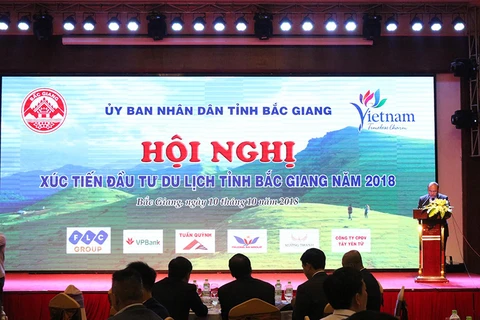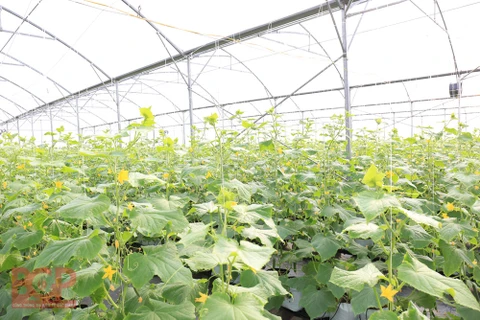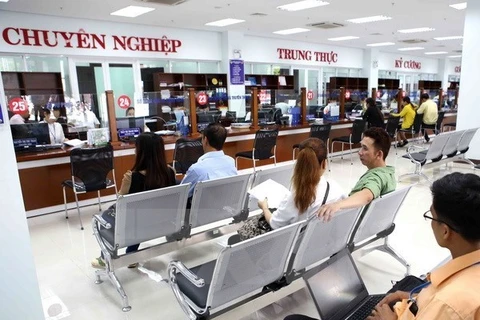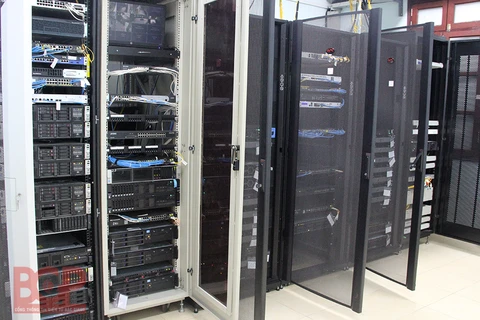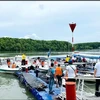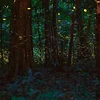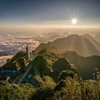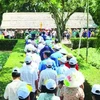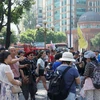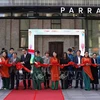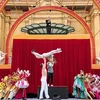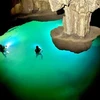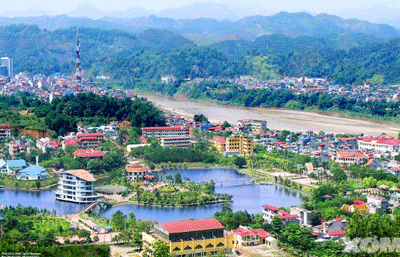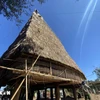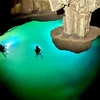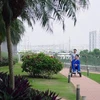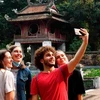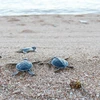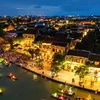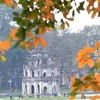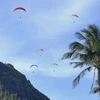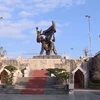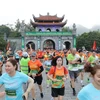Bac Giang (VNA) - The northern province of Bac Giang is striving to develop tourism into a pillar economy amid the COVID-19 pandemic.
In the near future, the province will develop tourism in tandem with preserving and upholding cultural heritage values, promote Bac Giang tourism trademark as an attractive destination in the northeast, northern midland and mountainous regions on the back of its diverse terrain, vast orchards and UNESCO-recognised intangible cultural heritages.
By 2025, Bac Giang will tap five key tourism routes, including Hanoi – Bac Giang – Luc Ngan – Son Dong – Bai Chay and vice versa; Tay Yen Tu in Son Dong, Luc Nam and Yen Dung districts; community tourism space with orchards and tea growing areas in Luc Ngan, Luc Nam, Yen The districts; night tourism, entertainment and economic space in Bac Giang city; and golf tourism space.
The province will also strive to basically complete the construction of the Tay Yen Tu spiritual and ecological tourism complex, gradually build a pedestrian road with vestiges following the footsteps of Buddha on Yen Tu mountain range. The locality has added the national and provincial tourism areas, 20 community-based tourism spots with orchards and farm produce into its master plan, thereby attracting around three million visitors, earning nearly 3 trillion VND (130.4 million USD) and generating jobs to 6,000 workers in tourism field.
Based on the master plan approved by the Prime Minister, Bac Giang devised planning for its tourism spaces, focusing on the Son Dong forest tourism area in connection with Ha Long in neighbouring Quang Ninh province and Tay Yen Tu complex.
The locality will also focus on four key tourism products, including cultural-spirtual, ecological-resort, golf, community tourism with orchards and farm produce. It will pool all possible resources to upgrade technical infrastructure for tourism, invites investors to major projects, build hi-end hotels, restaurants and cultural-sport works, popularise fruit festivals, form pedestrian streets, develop night economy, and design flower gardens based on themes and seasons.
It will also enhance tourism marketing and improve workforce quality in the locality.
During the 2016-2020 period, tourism became an important economy with a high proportion in local economic structure. The total number of tourist arrivals was estimated at nearly 7.7 million, including around 83,000 foreigners and some 7.6 million domestic visitors, earning over 4 trillion VND.
Since 2016, the provincial People’s Committee approved a policy of investing in six tourism projects worth over 2.545 trillion VND, including Tay Yen Tu spiritual – ecological tourism project worth more than 1.48 trillion VND, Bac Ha hotel valued at around 40 billion VND in Song Khe commune, Bac Giang city, Bac Ha – Yen Tu stop station worth nearly 36 billion VND in Tuan Mau commune, Son Dong district, Sun Resort worth 40 billion VND in Ham Long village, Yen Lu commune, Yen Dung district, Khe Hang Dau ecological area worth over 497 billion VND in Nham Son commune, Yen Dung district, a smart hotel and shopping mall complex worth 450 billion VND on Nguyen Van Cu street, Bac Giang city.
Investment in tourism projects in Bac Giang has so far reached some 1.8 trillion VND.
Located in the Lang Son-Hanoi-Hai Phong-Quang Ninh economic corridor and bestowed with stunning natural landscapes like Tay Yen Tu Natural Reserve, Khe Ro primeval forest, Dong Cao plateau, and Khuon Than lake, Bac Giang province poses huge potential to build various kinds of tourism products.
Endowed with favourable climate, stable geology and rich soil, this land is a home for Kinh Bac culture development, essence of Vietnamese culture.
Bac Giang is preserving a number of special cultural heritages, four of which were recognised by UNESCO including Quan Ho folk songs, Ca Tru (ceremonial singing), Then singing and Vinh Nghiem pagoda’s woodblocks.
Besides, the province is home to nearly 2,300 historical and cultural relics and a large number of beautiful landscapes, which are good conditions to develop numerous tourism models such as eco-tourism, resorts, spiritual tourism and craft village tourism./.


